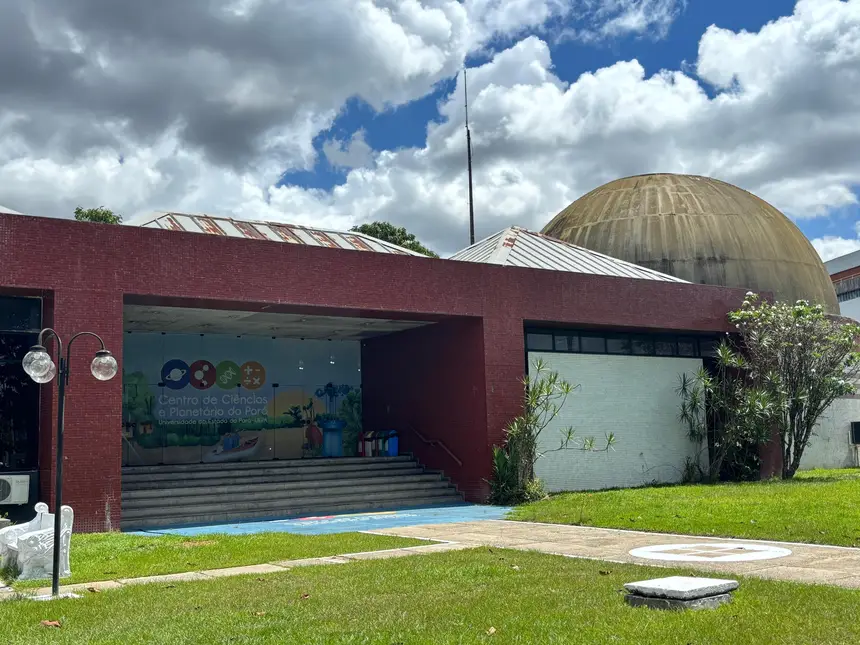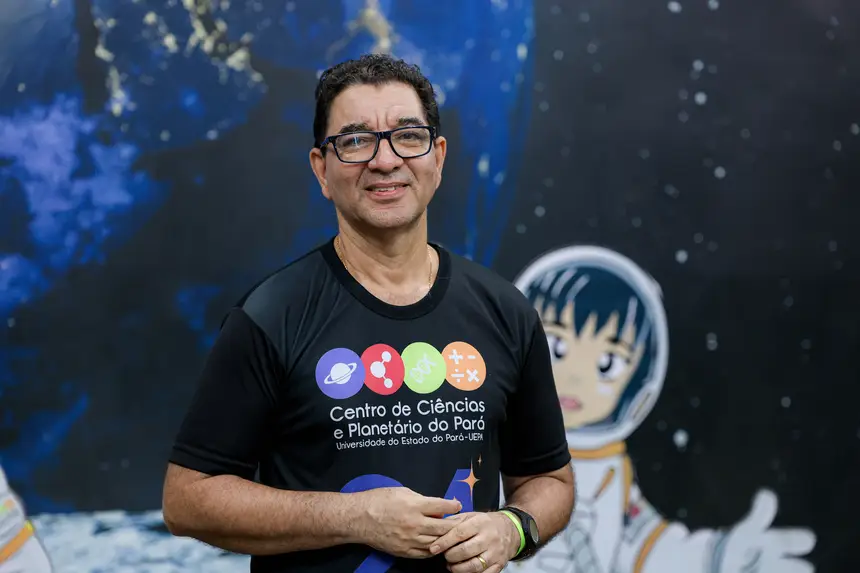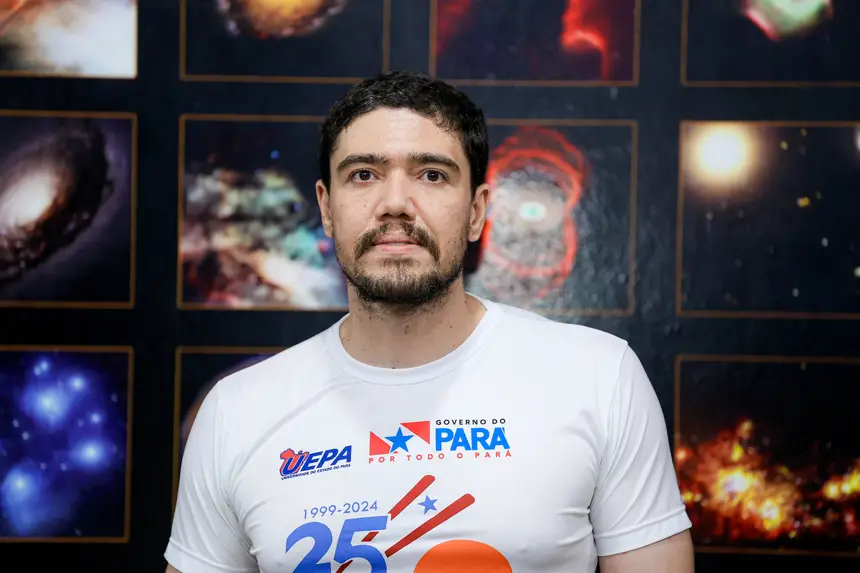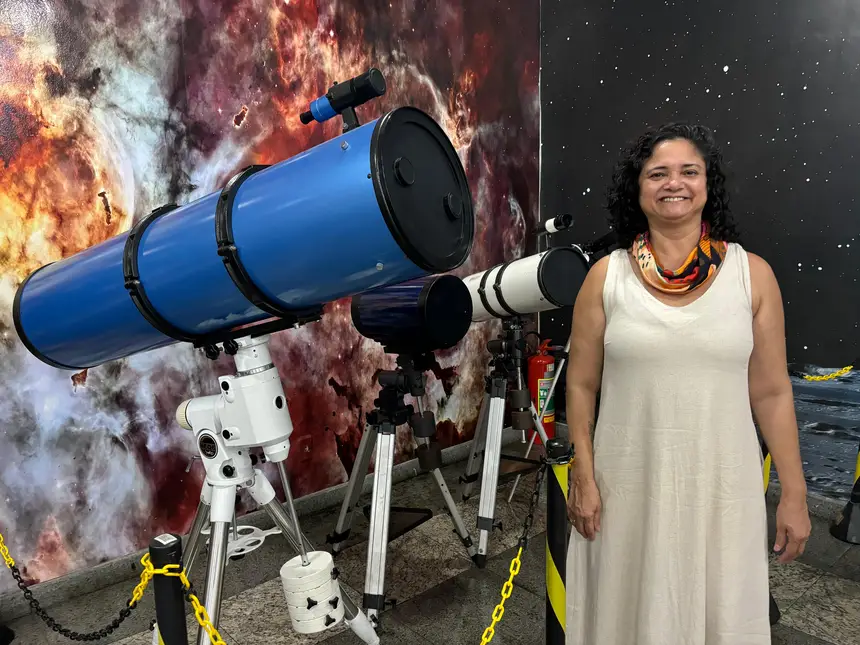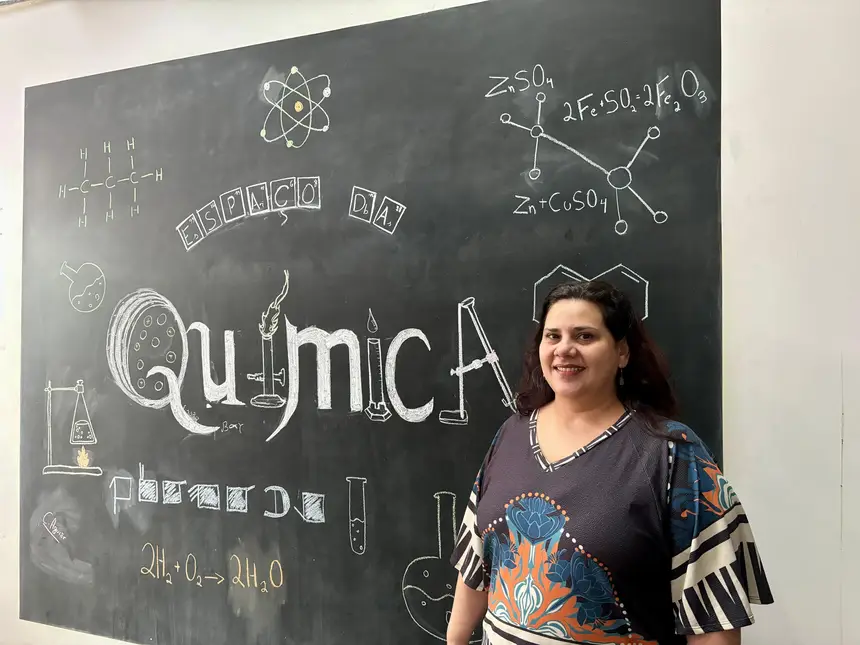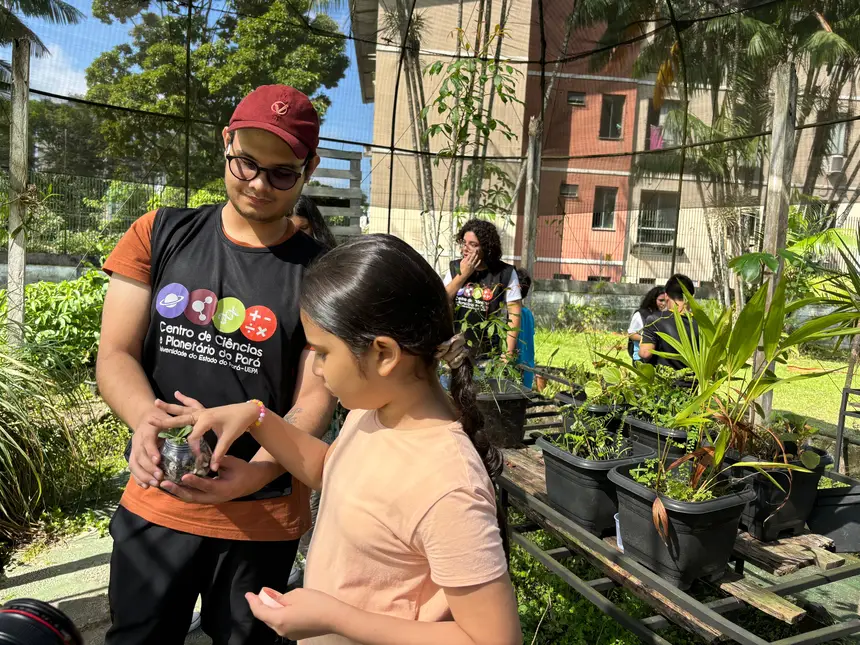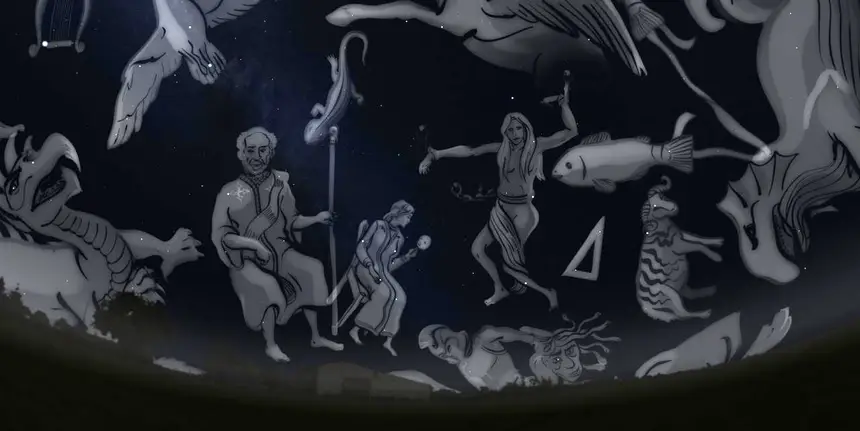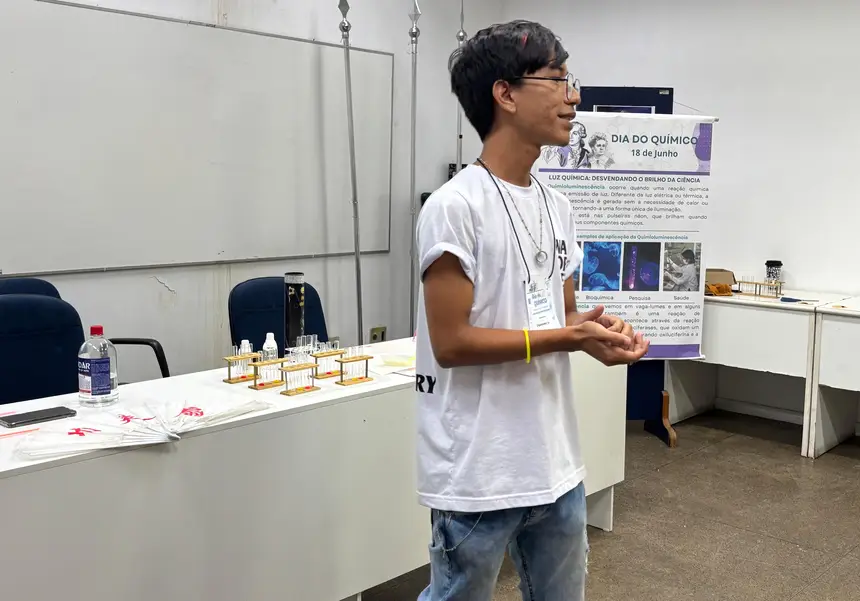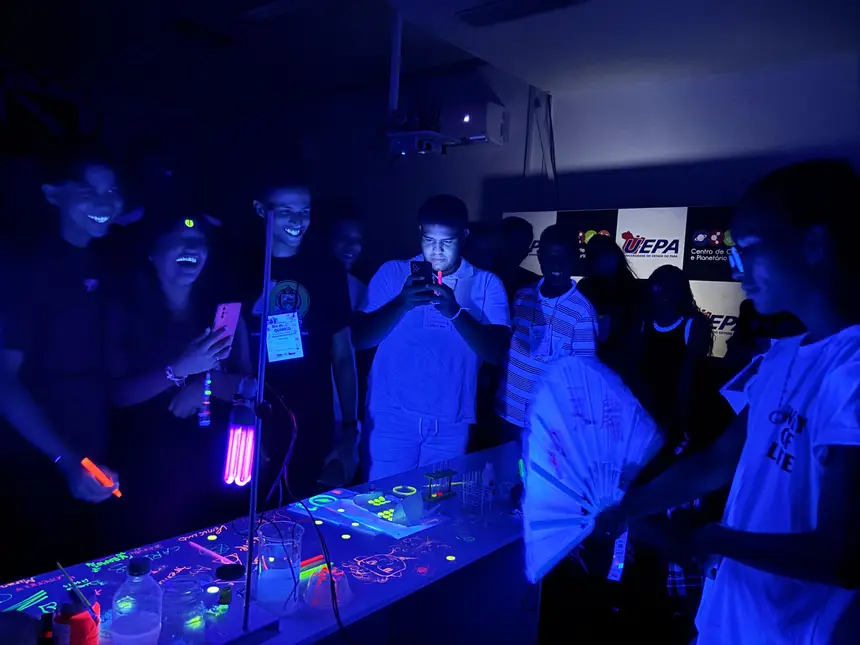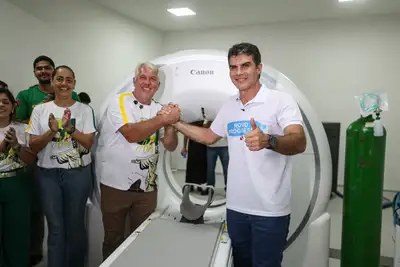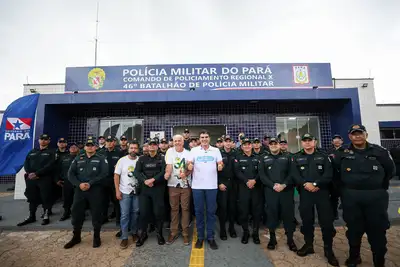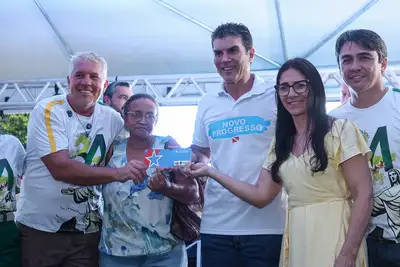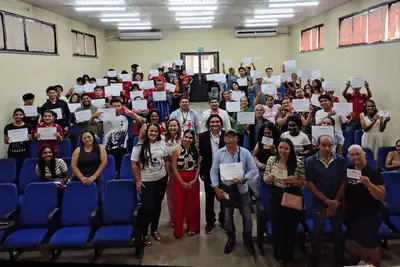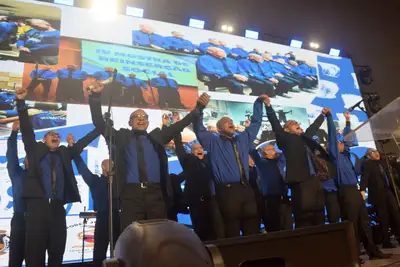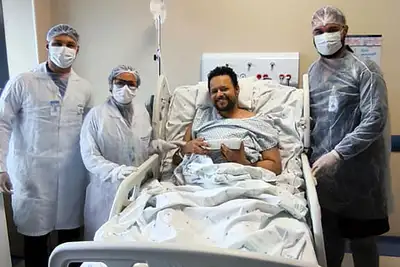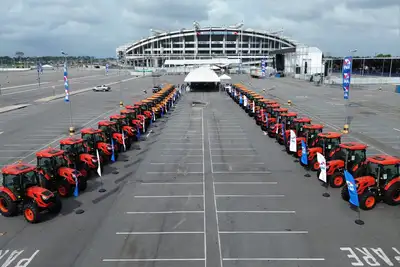Planetarium is part of the 19th Spring of Museums with actions on climate change
The program includes the opening table, lectures, thematic workshops, storytelling, educational actions, and access to the science center and dome session
Between September 23 and 27, the Science Center and Planetarium of Pará (CCPPA), linked to the State University of Pará (Uepa), will integrate the programming of the 19th Spring of Museums. This year, the event with the theme "Museums and Climate Change" aims to promote debates and actions on the role of museums in raising awareness and addressing the climate crisis, emphasizing the importance of preserving cultural and natural heritage.
Among the activities promoted by CCPPA at the event are: opening table, lectures, thematic workshops, storytelling, educational actions, access to the science center, and dome session.
On Tuesday (23), Thursday (25), and Friday (26), the program will be focused on schools previously scheduled to visit CCPPA. On Wednesday (24), from 2:30 PM to 5:30 PM, and on Saturday (27), from 8:30 AM to 11:30 AM, the activities will be open to the general public, free of charge, and without the need for prior registration.
Debates on environmental challenges
By being part of the programming of the 19th Spring of Museums, CCPPA reinforces its role in scientific dissemination and in the debate on current environmental challenges. For the director of the space, Professor José Roberto Silva, the initiative gains even more prominence given the central theme of the event.
“The participation of the Science Center and Planetarium of Pará with a specific program aimed at the 19th Spring of Museums is very relevant, as it not only addresses the theme 'Museums and Climate Change', but with the proximity of COP 30, it allows us to disseminate our extension activities in Astronomy, Physics, Chemistry, Biology, and Mathematics at a national level, as our program is promoted by the Brazilian Institute of Museums (Ibram), the event's promoter,” emphasizes Professor José Roberto.
For the pedagogue of CCPPA, Alice Sousa, participation in the 19th Spring of Museums not only increases the visibility of the institution but also reaffirms its role as an important hub for scientific and cultural dissemination in Pará: “By opening its doors with a diverse program, the Planetarium of Pará stimulates education, reflection, and dialogue on essential themes. The Spring of Museums is a perfect opportunity for the population to reconnect with the space, understanding science not only as a field of study but as a fundamental part of our daily lives and the construction of a more sustainable future.”
Opening debate on Climate Change
The activities of CCPPA during the Spring of Museums 2025 will begin next Tuesday, 23, at 8:30 AM, with an opening table composed of Uepa managers. Following this, the lecture “Planetary boundaries and climate change: an analysis through critical environmental education” will be given by the Uepa professor and head of the Chemistry Space of CCPPA, Vania Lobo. Afterward, the workshop “Chemical Light: an approach to climate change and its impact on biodiversity” will take place.
The opening lecture will highlight climate change as a planetary boundary already in transgression. The meeting will draw attention to the impacts of global warming, deforestation, and changes in the cycles of matter and energy on Earth, processes that have intensified extreme situations worldwide. Among these effects are, according to Vania Lobo, “prolonged droughts, devastating floods, and intense heat waves, which particularly affect the most vulnerable populations.”
“The goal is to demonstrate the threats to the existence of life related to climate changes, especially for the most vulnerable populations, and to call society to understand the phenomenon in its entirety and contribute to its transformation,” points out the professor.
According to Vania, the lecture will bring the perspective of Critical Environmental Education (EAC), which goes beyond the restricted view of individual sustainable consumption or the exclusive bet on eco-efficient technologies. “EAC questions the very economic model in force, based on the logic of profit and the commodification of life, which externalizes environmental costs, treats nature as a commodity, and compromises the conditions that sustain life on the planet. In this sense, environmental education can form a critical consciousness capable of identifying the structural causes of the climate crisis and mobilizing transformative social and political practices, assuming a central role in the formation of conscious, critical, and engaged subjects in the transformation of socio-environmental reality,” she details.
Interactive Workshops
On Wednesday, 24, from 2:30 PM to 5:30 PM, the program will be open to the public. There will be a dome session, access to the Science Center, and storytelling in the “Tião's Toy Library.” On this date, the public will also be able to participate in the workshop “Chemical Light: an approach to climate change and its impact on biodiversity,” led by the Chemistry intern of CCPPA, Carlos Santos.
The workshop will address chemiluminescence, explaining how the reaction occurs in animals and presenting practical examples from nature. Among them, the public will get to know a firefly, which stands out for exhibiting bioluminescence, a specific phenomenon that occurs in some living beings. To illustrate the activity, resources of chemiluminescence and fluorescence will be used, which help to understand how light can be produced by different organisms and substances. During the activity, participants will also be able to interact directly with paints, pencils, and thematic drawings, making the experience more playful and engaging.
“Our goal is to disseminate the chemical knowledge that involves the process of bioluminescence and biofluorescence, as well as to clarify some of the living beings that have the ability to generate light. We will address how these animals contribute to the ecosystem and how they are threatened with extinction due to climate change, as is the case with the firefly. We will discuss how they manage to produce light in a unique way,” says Carlos Santos.
The activities on Thursday, 25, will be marked by a lecture on sky recognition through Stellarium and the launch of the comic booklet “A Visit to the Planetarium of Pará: the Chemistry Show,” which can be accessed here.
The Physics technician of CCPPA, Gabriel Condurú, will develop the sky recognition activity, aimed at the school scheduled for visitation to CCPPA. He explains how the initiative will take place: “This lecture is ideal for beginners, as it is a practical guide to uncover the night sky using this free digital planetarium software. Through it, it is possible to set the location and time to simulate the sky from anywhere in the world, as well as identify constellations, planets, and stars.”
On the morning of Friday (26), the program will be marked by the lecture “Scientific bases of climate change and main threats to the Amazon,” with the professor from the Federal University of Pará (UFPA), Everaldo Barreiros de Souza. In the afternoon, the workshop “Chemical Light: an approach to climate change and its impact on biodiversity” will take place.
On the last day of programming for the 19th Spring of Museums, Saturday (29), from 8:30 AM to 11:30 AM, CCPPA will open its doors to the general public, with free entry. Visitors will be able to watch the dome session, access the Science Center, follow storytelling in the “Tião's Toy Library,” and participate in the workshop “Seeds for the Future: forests and climate change.”
The interns of CCPPA, João Victor Benassuly and Giselly Cristina Bezerra Leitão, will conduct the workshop, which aims to awaken the interest and curiosity of the public through a practical activity: the production of “seed bombs.”
During the workshop, participants will have the opportunity to make their own “seed bombs,” using clay and a variety of seeds. The central proposal is to encourage practices of forest recovery.
"The workshop comes with the purpose of combining playfulness with environmental learning, developing critical thinking, and empowering participants to become agents of transformation. Through practical and interactive activities, we will seek to sow awareness about the importance of forests in combating climate change, inspiring concrete actions for a more sustainable future," highlights João Victor Benassuly.
Service:
CCPPA at the 19th Spring of Museums
Program open to the public: Wednesday (24), from 2:30 PM to 5:30 PM; and Saturday (27), from 8:30 AM to 11:30 AM
Free Entry
Location: Rodovia Augusto Montenegro, s/nº, km 3, next to Mangueirinho.


